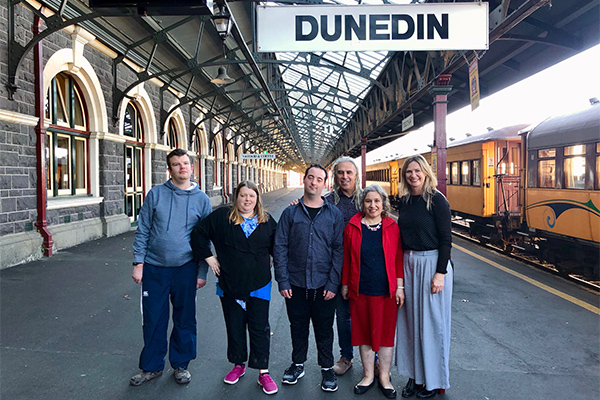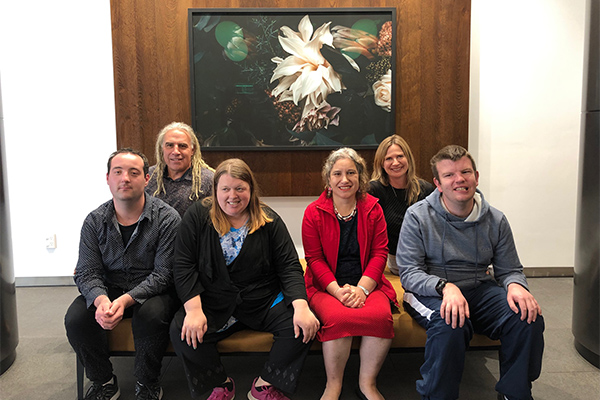Finalist
Historically, people living with disabilities have been the subject of research, not the researchers themselves. But last year more than 40 of the people involved in research at the Donald Beasley Institute had lived experience of disability.

The Donald Beasley Institute (DBI) is recognised nationally and internationally as a leader in the field of disability research with a commitment to ethical, inclusive and transformative research and projects that promote the rights of disabled people.
Two of its five permanent staff identify as disabled, and in 2019 it trained, employed or contracted more than 40 people with disabilities to carry out research activities. Their roles include senior staff, working group members, disability rights monitors, consultants, coders, transcribers, artists and writers. Where possible all the researchers are paid competitive salaries and fees.
The DBI began in the 1970s when a group of people, including the institute’s namesake paediatrician Donald Beasley, recognised the world was changing for people with disabilities. Deinstitutionalisation was on the horizon and families were demanding better supports and services for their disabled members.
Responding to this rapidly evolving environment, the DBI was initially established to promote contemporary thinking and research that would enhance the way disabled people were supported in New Zealand. Initially this was achieved by drawing on overseas research, hosting international scholars, and education events.
However, DBI recognised that greater change could be achieved by conducting disability research focused within the New Zealand context. Over its 36-year history, it has not only contributed important research pertaining to the lives and rights of disabled people, but also spearheaded inclusive methodologies which prioritise the voices of disabled people as researchers and experts themselves.
Director Dr Brigit Mirfin-Veitch says, “One of the most important, enjoyable and rewarding parts of my role is having the opportunity to mentor disabled researchers. I am passionate about research and I love to see that same passion grow in emerging researchers. I am proud of the part the DBI has played over many years in assisting disabled researchers both to develop their skills, and to navigate the competitive and complex research environment in Aotearoa New Zealand.”
Dr Mirfin-Veitch has gone to great lengths to foster the development of disabled researchers (particularly women with disabilities), which she has achieved by taking early career researchers and students under her wing and mentoring them through a highly competitive and academic industry.
She says flexibility around staff hours, how they work and where they work from, is a key aspect of maintaining a positive and inclusive work environment.

Senior Researcher Dr Robbie Francis Watene says, “Even though DBI is based in Dunedin, I work remotely from my home in Auckland. As a disabled person, this flexibility has been amazing as it has allowed me to maintain the relationships I have developed with my local health specialists. There is complete trust amongst the team. Even if we have hospital appointments, or other commitments, we are simply trusted to get the job done. Not only does DBI value me as a disabled employee, but it has launched me into a career I never dreamed possible, in a way I never thought possible.”
In the recently published research project Mean As!, people with learning disabilities worked together as storytellers and researchers to create an online library of stories about sexuality and relationships.
Darryl White has a learning disability and was a co-researcher on the project. “I was a bit nervous about becoming a researcher, but really enjoyed the chance it gave me to be the helpful and supportive person I want to be. Slowly I came to trust my own voice and in the end found the chance this work gave me to express my views very rewarding,” he says.
The DBI has consistently secured contracts to ensure its ongoing operation. This research funding has steadily increased, despite existing in a very competitive research funding environment.





